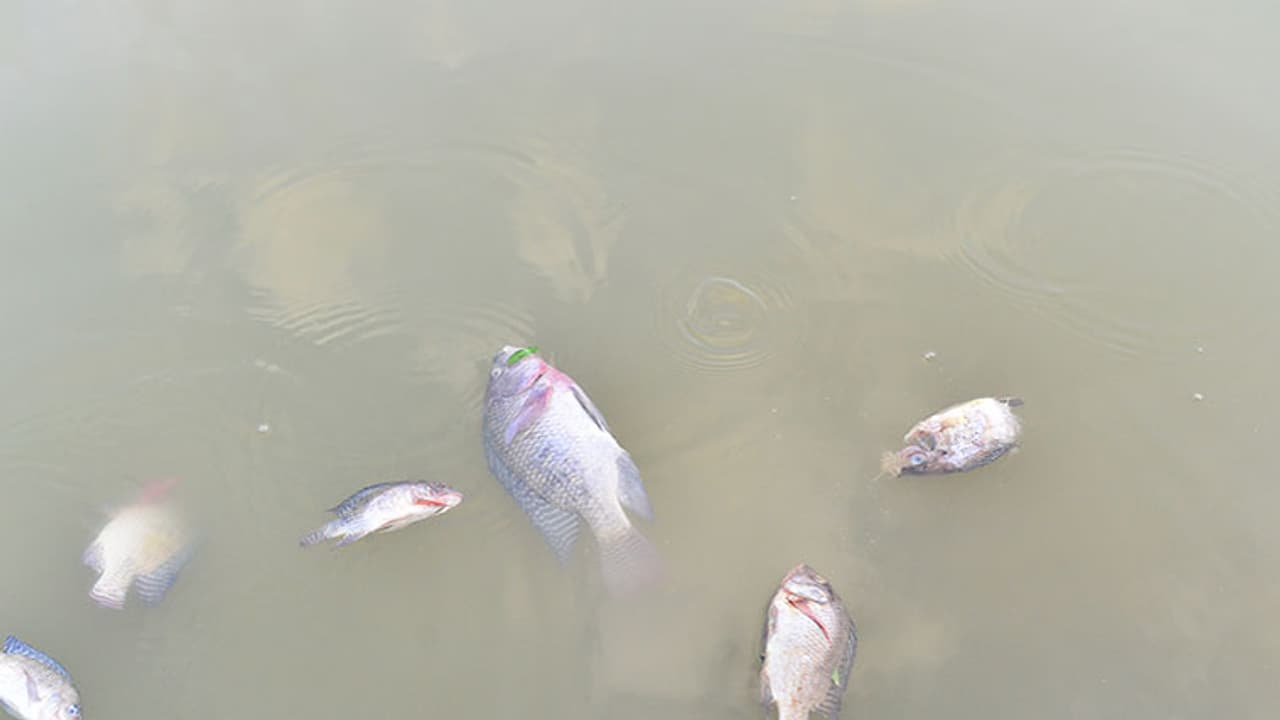MPEDA officials warn the aqua farmers Tilapia is bred in nearly 2 acres in the West Godavari district and in Ernakulam among other places Sores will form on Tilapia fish. Gills and scales will fall
Tilapia Lake virus is scaring the countries where fishing is bred. Marine Products Exports Development Authority (MPEDA) officials stated that this virus has spread to India also.

The Centre ordered the MPEDA officials to warn the aqua farmers about this virus. The officials said that already there was 80 per cent loss in countries of Israel, Latin America, Ecuador and Colombo.
Tilapia is bred in nearly 2 acres in the West Godavari district. Tilapia is of three types. Black Tilapia is available in the past in Kolleru Lake. Since there was no value for this, they imported red Tilapia from America and started breeding it.
Recently MPEDA imported grey Tilapia from Phillippines and opened its hatchery in Kankipadu in Krishna district. At present, there’s a lot of demand for this fish and so MPEDA is working on its development.
And in March, the MPEDA had accounted for around 800 tonnes of Genetically Improved Farmed Tilapia being produced in Kerala in this year. During the period, around 16 lakh fingerlings were supplied to farmers in the state by the Rajiv Gandhi Centre for Aquaculture, Vijayawada.
In terms of aquaculture fish it is very popular in the Ernakulam district, especially at Cherai, Kothamangalam and Aluva. So while Andhra farmers are facing the brunt, and since the fingerlings come from Vijaywada, the Kerala farmers also need to be warned.
The characteristics of this virus:
Tilapia lake virus is a newly emerging virus that is associated with significant mortalities in farmed Tilapia and cases had been previously reported across Africa, Asia and South America.
Sores will form on Tilapia fish. Gills and scales will fall. The reddish eyes of the fish become white. They stop feeding. Their movement will stop and they reach the lower part of the lake. If these characteristics are found in the fish, then the Bhimavaram MPEDA MD Dr. P. Srinivasulu asked the fishermen to take the samples to the local MPEDA offices. He told that they would send these samples for tests to Rajiv Gandhi Centre for Aqua Culture in Tamil Nadu.
However, study proves that there has been no report of any human health-related issues linked to the consumption of affected Tilapia from any of the affected countries since the emergence of TiLV. Looking at fish viruses overall, including TiLV, there is no evidence for a fish virus causing disease in humans.
